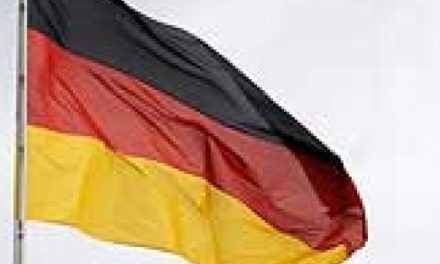At the time, Tsipras and his cabinet appeared like naive communists who believed that the Marxist theories could apply in a real economy, and capitalism — or neoliberalism, the new boogie man for Greek leftists — is the enemy of the people.
With then finance minister Yanis Varoufakis at the helm, Greece was like a ship sailing straight into the rocks of bankruptcy. Help from China or Russia never came. Luckily for the country, Greece’s European partners wanted to protect the euro zone from the repercussions of a Grexit, so they sat Tsipras down and explained to him a few things about how the real world works and that Marxist fantasies have no place in it.
But Greece had another ally at the time. The United States wanted Greece to remain in the euro zone due to its important geopolitical position in a volatile region. Phone calls of President Barack Obama to Chancellor Angela Merkel, U.S. Treasury Secretary Jack Lew’s contacts with Tsipras and pressure from the Greek American lobby brought Greece much closer to the U.S..
Soon, Alexis Tsipras was a Barack Obama guest in the White House and in panels trying to attract U.S. investors to debt-stricken Greece. His whole cabinet paraded in New York making contacts with Diaspora Greeks and, why not, enjoy the good life in the Mecca of capitalism.
And therein lies the irony: People who built their political careers in demonstrations outside the U.S. Embassy in Athens shouting “Americans, killers of the peoples”, suddenly turned to the U.S. for support.
For decades since the restoration of democracy in 1974, leftist-fuelled anti-Americanism was rampant in Greece. Given the CIA support of the seven-year junta, the anti-American feeling was partly justifiable, but grossly exaggerated. In 1999, unionists, actors and other leftists held a “people’s court” at Syntagma Square to indict then U.S. president Bill Clinton for the bombardments in Serbia.
Only four years ago, the visit of a U.S. high official in Greece would have Tsipras and his comrades rioting in the streets of Athens. For Greek leftists, the U.S. was the devil, and burning an Americal flag was a must for every self-respecting leftist.
Yet, in 2018, Greece’s leftist administration is the most pro-American government in contemporary history. All their previous hatred against America has been forgotten. One would say that now that they have enjoyed the perks of power and the goods of capitalism for almost four years, they watered down their beliefs.
Tsipras, who still exhibits infrequent flashes of his “rebellious” past in the Greek communist party youth for domestic consumption, visited the White House for the second time last October, this time invited by Donald Trump.
The Greece – United States partnership in the energy sector is a given, as Washington wants to isolate Russia in the natural gas supply. The Greece – FYROM name agreement is also dictated by Washington, in an effort for the Balkan country to join NATO, therefore become another buffer state to Russian influence.
The Greece – U.S. cooperation was sealed in this year’s Thessaloniki International Fair, at which the United States is the honored country. The flagship of the U.S. Sixth Fleet, the “USS Mount Whitney” anchored in Thessaloniki and an impressive number of top American officials held their major reception there.
Then it was the pictures of Alexis Tsipras, U.S. Ambassador to Greece Geoffrey Pyatt U.S. Secretary of Commerce Wilbur Ross looking like they had a blast visiting American pavilions at the fair, with the latter praising Greece in the press conference.
The timing of the tightening of U.S.-Greek relations is in favor of Tsipras and his cabinet. One would say that relations between the two countries are the best in years. Too bad for Tsipras that the fear of his hard-leftist constituents and his past do not allow him to celebrate. But one thing is certain: Anti-Americanism in Greece is dead and it is a leftist government that closed the coffin lid.



















